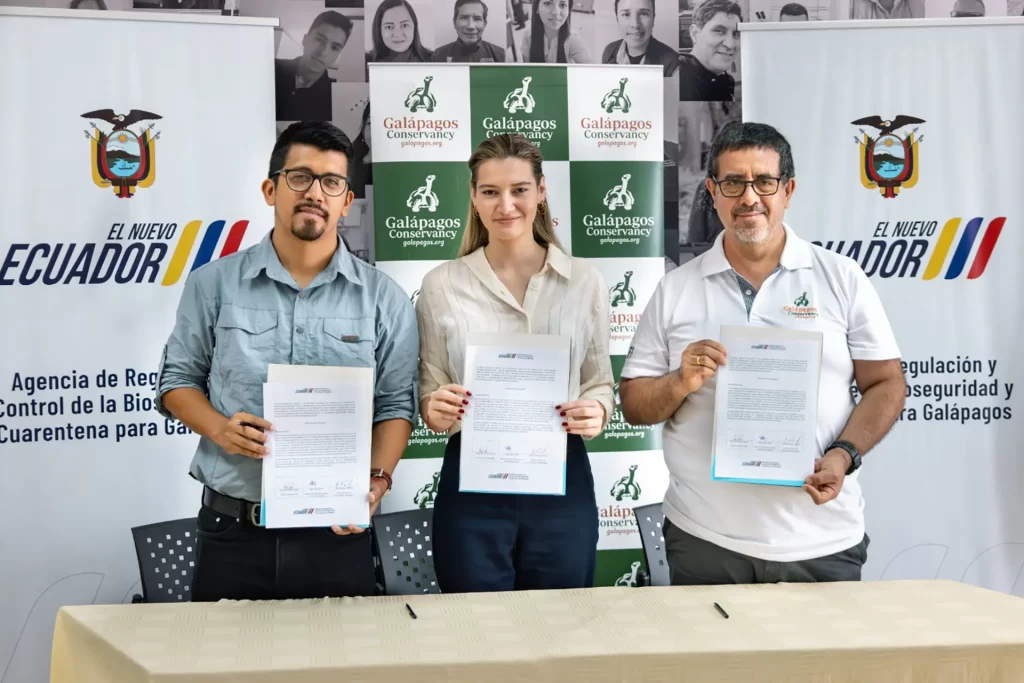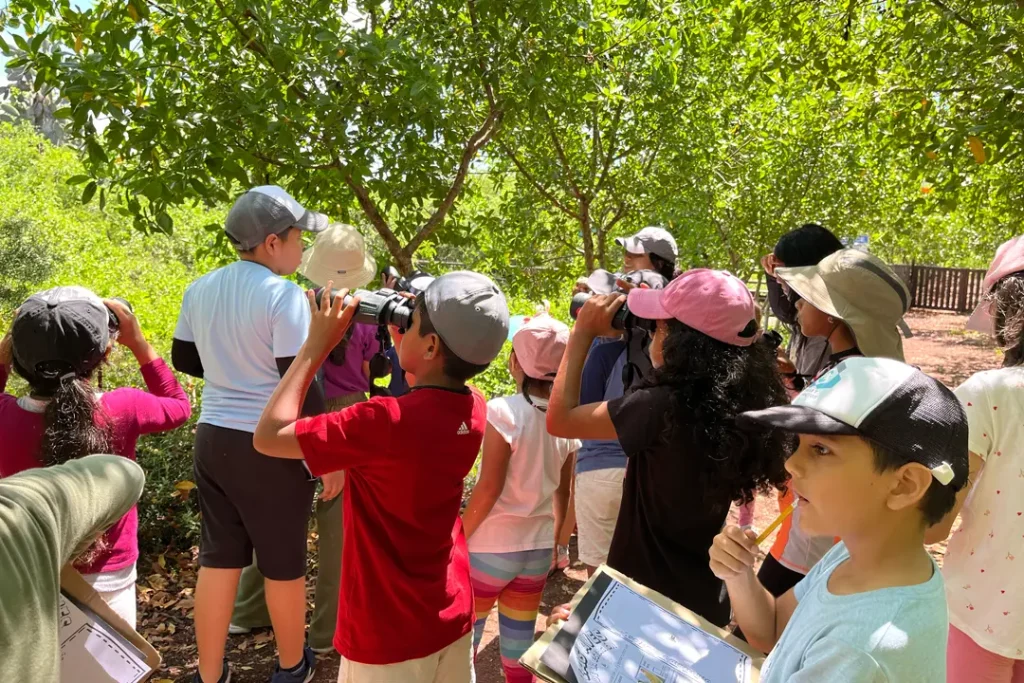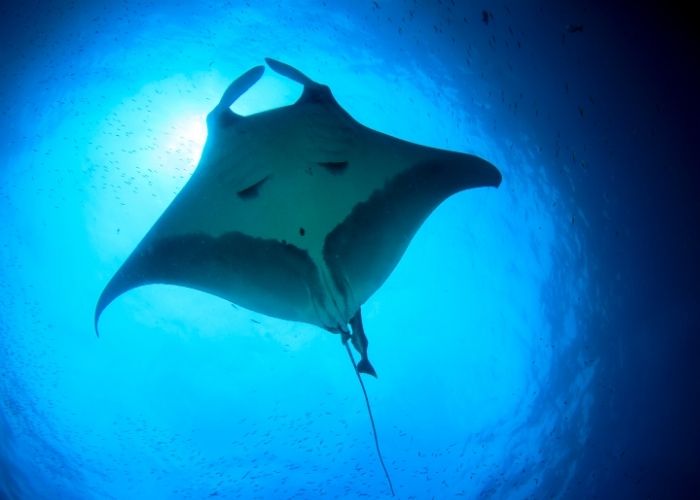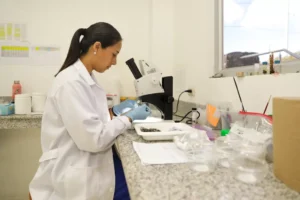
©Galápagos Conservancy
Washington Tapia, our General Director and Jean Pierre Cadena of the Galapagos Biosecurity and Quarantine Agency were present at the signing ceremony. Also in attendance was Sade Fritschi from Ecuador’s Ministry of Environment. Tapia said that “Galapagos Conservancy will play a vital role in fostering innovative studies. We are confident that information collected, including the genome description of giant turtles and other iconic species, is going to be instrumental in optimal management and conservation for the archipelago’s emblematic species”.
This agreement promises several important benefits:
- Precise Species Identification: The Molecular Analysis of Genetic Samples that can be exported now under this agreement, will allow the accurate identification and conservation of many species.
- Optimised breeding programs: Captive rearing programmes can be improved significantly by identifying the best breeding groups.
- Early diagnosis: Identification of high-risk diseases that affect endemic wildlife will allow for timely, effective response measures.
It will be crucial to make informed decisions regarding resource management and conservation for Galapagos that we can now analyze genetic samples taken from Galapagos using modern molecular-genetic technologies.
This initiative allows for a joint effort between Ecuadorian authorities and Galapagos Conservancy to conserve endemic Galapagos species.
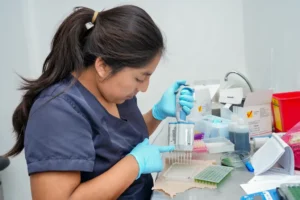
©Galápagos Conservancy
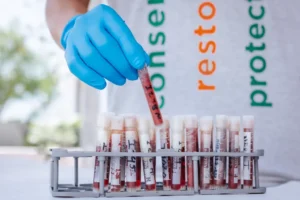
©Galápagos Conservancy
